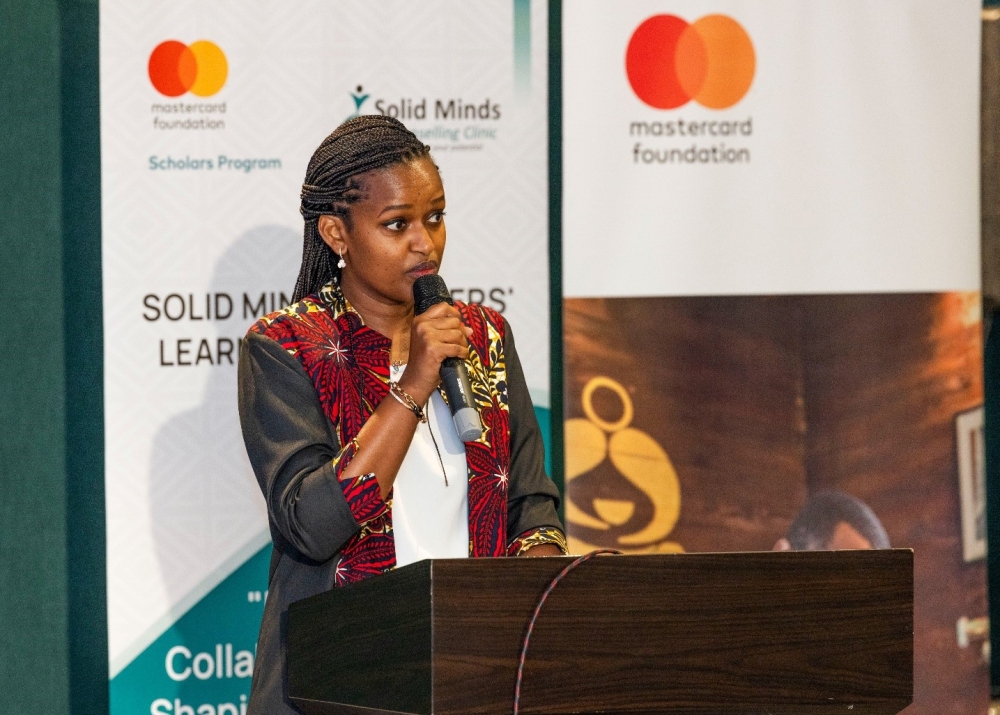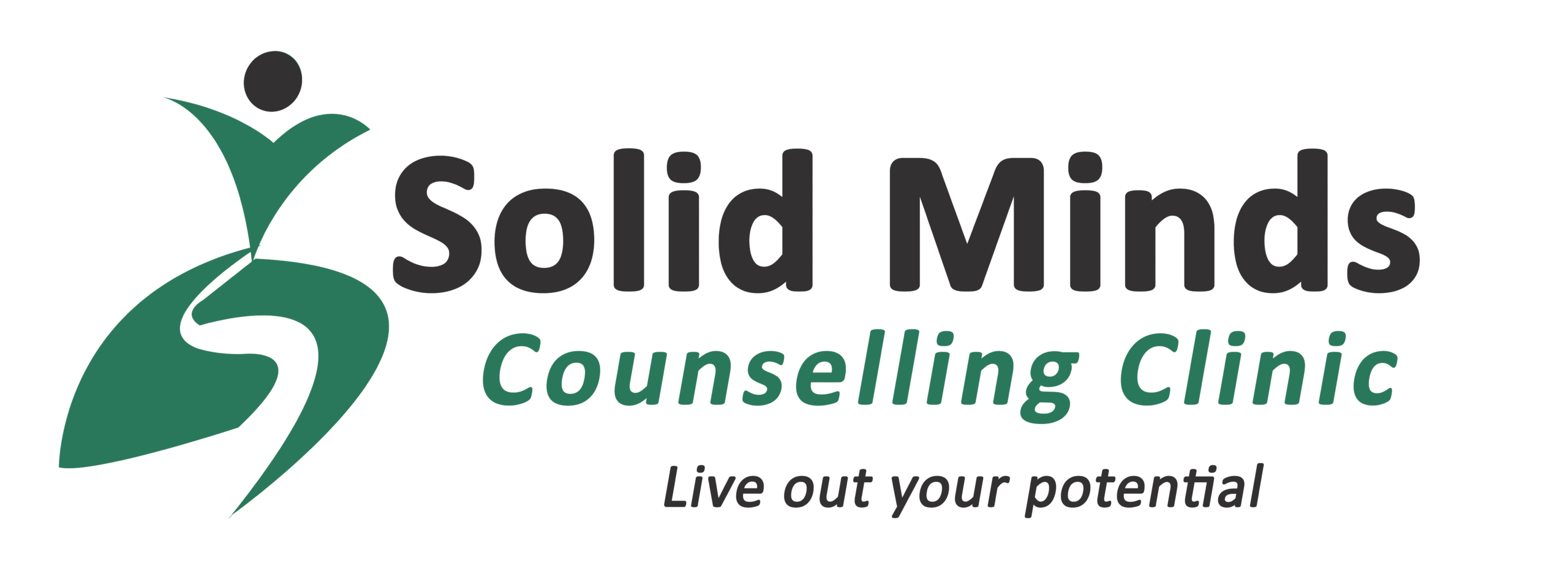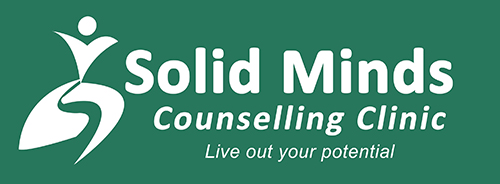Tuesday, March 5 — Nearly 100 professionals gathered in Kigali at the Four Points by Sheraton Hotel for a convening discussing solutions to improve the well-being and mental health of African scholars in universities across the continent. The event was organised by Solid Minds, a counselling clinic and independent outpatient centre for mental healthcare, research, and training, based in Kigali, in partnership with the Mastercard Foundation Scholars Program.
Research shows that university students studying in Africa and abroad have seen rising rates of mental health concerns due to the significant challenges they face. Prevalence of distress can be as high as 53% among students, according to a South African study.
To address this, Solid Minds has an ongoing project in collaboration with the Mastercard Foundation Scholars Program to work with universities across Africa to elevate the mental health and well-being of students.
Last week, Solid Minds had the opportunity to bring together 99 professionals representing more than 17 universities across Africa, two technical Africa-based partners, and four Europe-based universities for a three-day convening under the theme, “Empower, Collaborate, Thrive: Shaping the Future of Mental Health Support for African Scholars and Alumni.”
The convening was officially opened by the Minister of State in Rwanda’s Ministry of Youth and Arts, Sandrine Umutoni. She thanked Solid Minds and the Mastercard Foundation for organising and supporting mental health initiatives in Africa and beyond.
“It is through initiatives like this one that policymakers, mental health experts, members of the academia, and students, get to examine further what should be prioritised to achieve the holistic well-being of our students, our institutions, and ultimately, our societies at large,” the minister said.

Esther Niwemwiza, a mining and geology student at the University of Rwanda, described the prevalence and effect of stress on students stating, “Many of us have normalised being stressed over different things, which sometimes lead to dropouts of scholars.”
Increased rates of poor mental health are related to the unique challenges that these students face. Most Mastercard Foundation scholars study in international contexts and are often required to adjust to new cultures, on and off campus — on top of the pressures of studying.
This can lead to feelings of isolation and homesickness, and students can also experience issues of housing, healthcare access, visas, and discrimination. Such transitions can exacerbate academic stressors and lead to mental health struggles.
It is against this backdrop that representatives from universities and partners, SolidMinds, the Mastercard Foundation Scholars Program, students, and alumni convened to identify effective sustainable solutions towards the mental well-being of students studying in African universities.
Welcoming partners to the convening, the co-founder and CEO of Solid Minds, Sam Munderere, thanked all of them for accepting the invitation to gather in Rwanda to discuss challenges surrounding mental health, especially within academic institutions and settings.
He also expressed gratitude to the Mastercard Foundation for funding and supporting the work being done to address mental health issues in the academic community. He emphasised that one of the primary challenges faced is the stigma surrounding mental health in many African societies. That’s why Solid Minds is dedicated to fostering an environment where mental health is prioritised.
Through key panel discussions and small group sessions, participants shared experiences on supporting online learners, students living abroad, students who are refugees and displaced people, and students with disabilities, as well as the alumni experience. Sessions also focused on support for non-clinical staff and best practices in student support, as well as setting up wellness centres and how to improve access and use of these resources. In keeping with the theme of adopting an Afrocentric perspective in these interventions, Anele Siswana, a spiritual healer and clinical psychologist, presented his work on the decolonisation of psychology.
Dr Chaste Uwihoreye and. Faith Cheonga, researchers at the University of Rwanda, presented findings on the importance of collaborating and co-designing interventions and services with the students. This is to ensure accessibility, respect for cultural sensitivities, and relevance. In addition to this, discussions focused on ensuring the well-being of academic practitioners and staff in these universities.
The conference’s primary achievement was the cultivation of a productive space for the exchange of knowledge and the expansion of professional networks for academia that support the Mastercard Foundation Scholars.
Sepiso Mwamelo, AfOx Scholarship Programme Manager at University of Oxford, explained, “Attending the convening was an important opportunity to pause and think about how to deliberately incorporate students’ wellbeing as a core aspect of scholarship programme design. I’ve been inspired by the work of other institutions, and have identified interventions that could potentially work in our context.
Clinical practitioner, Dr Salim Wangabi from Ashesi University in Ghana, echoed this sentiment, stating that the convening offered a unique opportunity to exchange experiences and learning between practitioners and collaborate in the development of interventions.
Charlie Bevan, Program Director of the Mastercard Foundation Scholars Program at the University of Edinburgh, explained that the value of being “part of a supportive, creative and impact-oriented community cannot be underestimated, and I leave the conference so grateful for the community.”
Representing the Ministry of Health at the convening was Dr Darius Gishoma, mental health division manager of the Rwanda Biomedical Centre. In his closing remarks on day three of the convening, Gishoma said, “Although this is the last day of the convening, our partnership has to go beyond today. The discussions and actions needed to improve and support the mental well-being of scholars and alumni in our respective countries have to continue. On behalf of the Ministry of Health and Rwanda Biomedical Centre, I would like to thank Solid Minds and the Mastercard Foundation, and all partners here present, for the organisation of this such an insightful convening.”
The Mastercard Foundation Scholars Program works to enable African youth to take a role in the creation of their future and that of the continent. Solid Minds Counselling Clinic, along with the participants of the conference, aspires to ensure that these incredible students can overcome barriers connected to mental health and wellness so that they can reach their full potential.


0 Comments